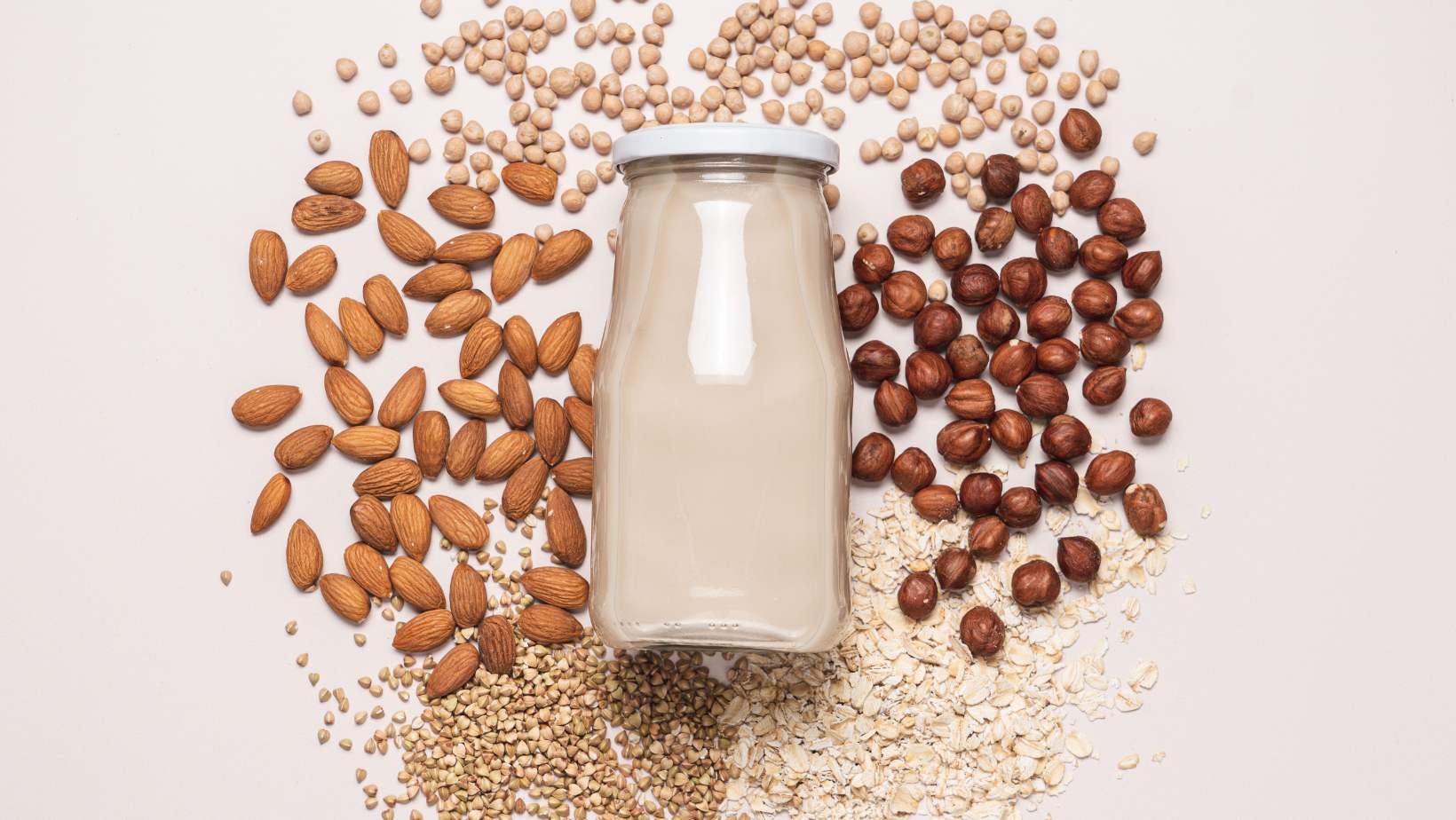Exploring the Diversity of Plant Milks
One of the most exciting things about the rise of plant milks is the sheer variety of options available. From the familiar favorites like soy and almond to newer innovations like oat and pea protein, there’s a plant milk out there to suit every taste preference and dietary need. Let’s take a closer look at some of the most popular choices:
Soy Milk
As one of the earliest and most well-established plant milks, soy milk offers a creamy texture and mild flavor that works well in both sweet and savory dishes. It’s also one of the closest plant-based alternatives to cow’s milk in terms of protein content.
Almond Milk
Known for its delicate, nutty taste and low calorie count, almond milk has surged in popularity in recent years. It’s a great option for those watching their weight or looking to add a subtle almond flavor to their recipes.
Oat Milk
The new darling of the plant milk world, oat milk boasts a rich, creamy consistency and natural sweetness that makes it ideal for coffee drinks and baking. Plus, it’s gentle on digestive systems and sustainable to produce.
Coconut Milk
With its distinctive tropical flavor and luscious texture, coconut milk is a staple in many Asian and Caribbean cuisines. It’s also packed with medium-chain triglycerides (MCTs), a type of healthy fat that’s readily used for energy by the body.
Making the Switch: Tips and Resources
If you’re curious about incorporating more plant milks into your diet, World Plant Milk Day is the perfect time to start exploring. Here are a few tips to help make the transition easier:
- Start with recipes where the flavor of the milk isn’t as prominent, like smoothies, oatmeal, or baked goods
- If you don’t like the taste of one plant milk, don’t give up – try a different variety or brand, as each can have its own unique flavor profile
- Look for unsweetened varieties to avoid added sugars, and fortified options to ensure you’re getting key nutrients like calcium and vitamin D
- Experiment with using plant milks in your favorite recipes – you might be surprised at how well they work as a substitute for cow’s milk
There are also numerous online resources available for those looking to learn more about plant milks and find recipe inspiration. Websites like Plant Based News, The Vegan Society, and Minimalist Baker offer a wealth of information and delicious, dairy-free recipes to try.
Ultimately, making the switch to plant milks is a personal choice – one that more and more people are making for reasons of health, environmental sustainability, and animal welfare. Whether you go all-in on a dairy-free lifestyle or simply opt for an almond milk latte now and then, you’re part of a growing movement that’s reshaping how we think about milk.
So this World Plant Milk Day, raise a creamy, frothy glass to the humble plants that are nourishing us and our planet in so many ways. And remember, every sip of plant milk is a small but meaningful step towards a healthier, more compassionate world for all. Cheers to that!
